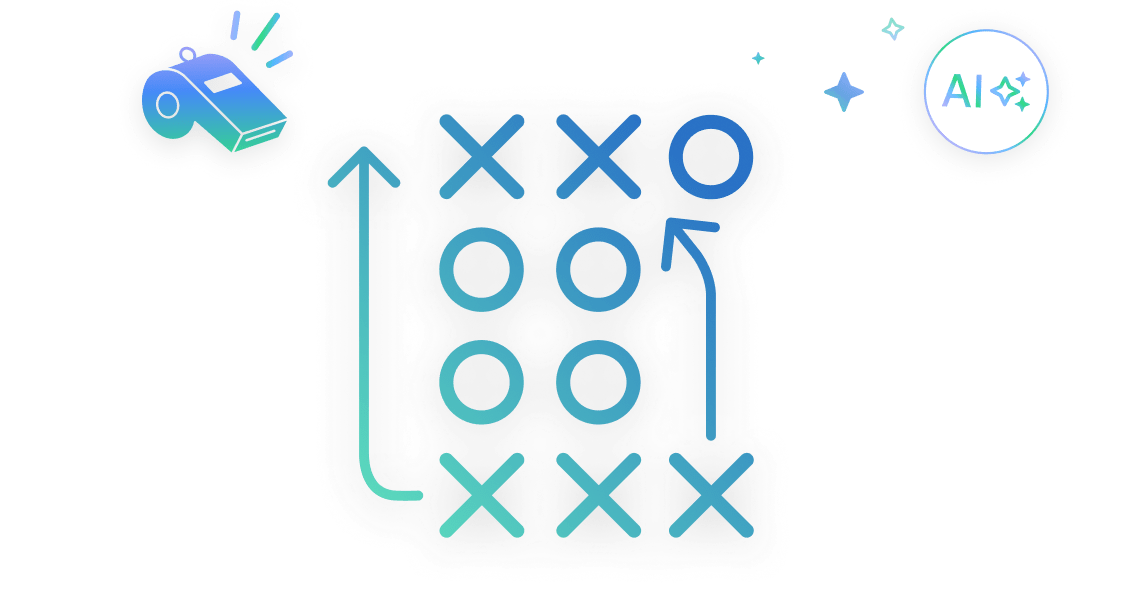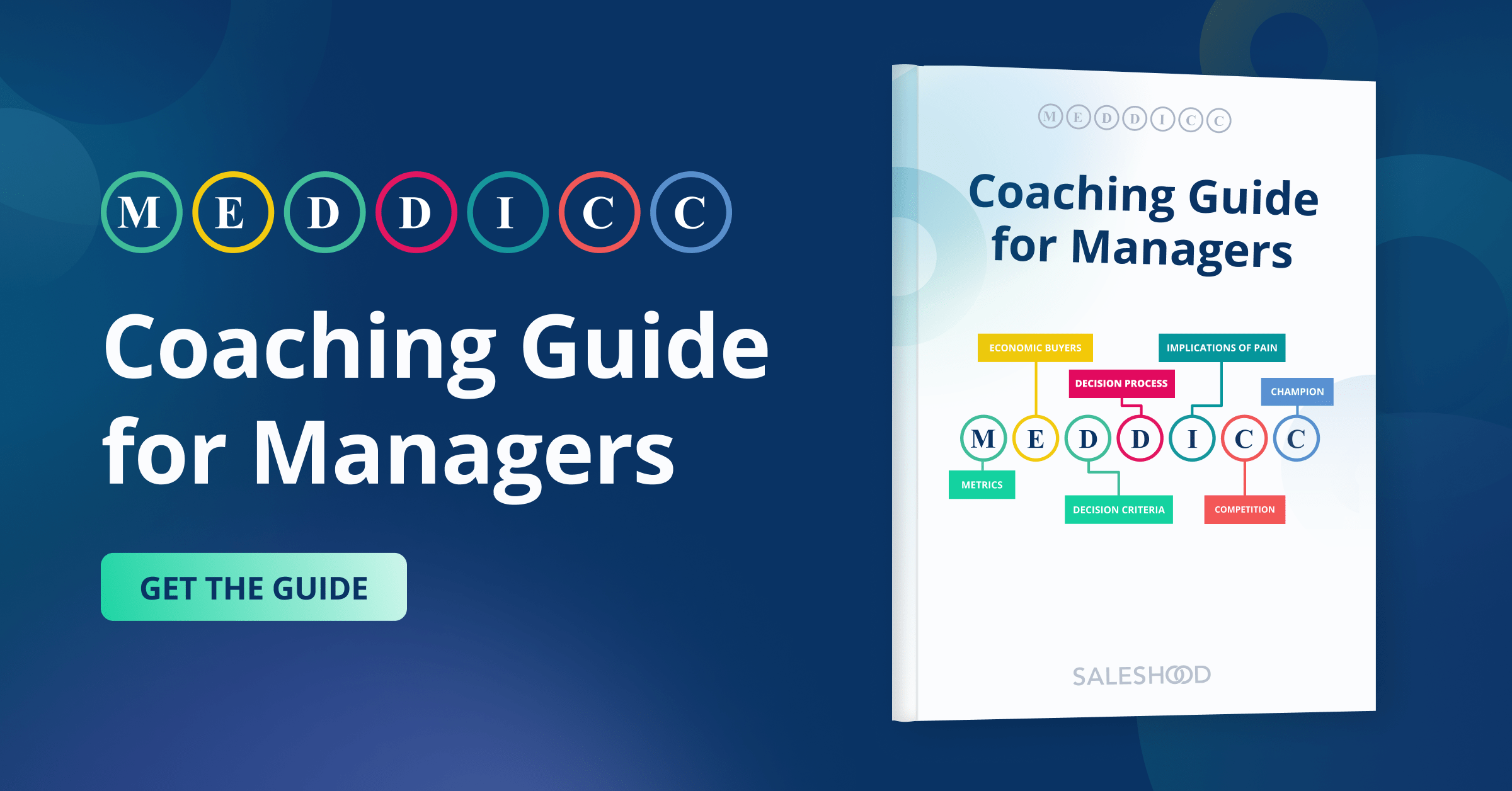Key Takeaways
|
|
|
Struggling to reach high win rates and drive revenue growth with your sales team? The answer could be more and better sales coaching.
The term sales coaching may seem daunting to you. You already have an overflowing inbox, back-to-back meetings, inter-departmental syncs, interview calls, and leadership pipeline discussions. As a sales enablement leader, your plate is full.
That 30-minute coaching call with your sales rep to improve their objection handling skills becomes a 5-minute chat and a 10-second pep talk. Add to those complex sales problems in 2025, like tighter quotas, scattered global teams, and the rise of AI.
In this scenario, sales coaching becomes the tool to navigate these complexities and ensure your sales teams exceed their targets. In fact, the Journal of the Academy of Marketing Science confirms that the right coaching can lead to as much as 16.7% higher annual revenue growth and a 28% rise in win rates.
Achieving high win rates and driving ambitious revenue growth feels challenging when sales teams navigate tighter 2025 quotas and scattered remote teams. For the sales manager, the schedule is already packed with pipeline reviews, administrative tasks, and critical leadership discussions.
AI-powered tools help carve out time from their busy schedules to deliver autonomous, self-guided coaching.
This automatically reinforces sales rep skills and provides targeted feedback without needing constant manager oversight. In fact, when used effectively, research confirms that the right coaching can lead to as much as 16.7% higher annual revenue growth and a 28% rise in win rates.
What Is Sales Coaching and Why It Matters in 2025
Sales coaching is the process of one-on-one mentorship that sales leaders and managers provide to sales reps to sharpen their skills and reach their targets.
Sales coaching is continuous, personalized, and personal. It’s different from sales training, which is one-time, generic, and group-based.
Why sales coaching? To ensure reps can diagnose the issues in their sales processes, find the right solutions, and improve their quota attainment and win rates. Additionally, the right sales coaching equips sales reps with proper objection-handling skills to qualify leads faster, develop strong buyer relationships, and improve the overall sales cycle.
Gartner’s State of Sales Manager Coaching finds that effective coaching by sales managers can result in 8% improvement in sales performance of sales reps.
Learn more about sales enablement metrics here.
Core Elements of an Effective Sales Coaching Program
A successful coaching program is built on a foundation of repeatable, structured processes that ensure consistent performance. While it is true that sales managers are often crunched for time, a coaching culture, along with autonomous, self-guided coaching with AI tools, can do wonders for sales teams.
Goal setting and success metrics
Start by setting clear, measurable goals for each rep and the team. Use data to identify key performance indicators (KPIs) that sales coaching can influence, such as quota attainment, ramp-up time, and deal size.
Regular one-on-one sessions with structured agendas
Establish a regular coaching cadence, weekly or bi-weekly, with either one-on-one sessions or AI-powered programs. These meetings should have a clear agenda to ensure a focused discussion on skill development, pipeline review, and strategic guidance.
Real-time feedback and call analysis
Use sales metrics and AI-powered conversation intelligence platforms to provide data-driven feedback. These tools allow managers to review call recordings, pinpointing specific moments for improvement, such as shaky discovery questions or missed objection-handling opportunities. This shifts the focus from a subjective review to an objective, data-backed discussion.
Manager enablement
Provide managers with the tools and templates they need to become better coaches. This ensures a consistent approach across the organization and prevents the hasty catch-up calls that arise from competing priorities. By enabling managers, you empower them to act as effective mentors, not just administrators.
Build your credibility as an industry professional with our Sales Enablement Mastery Certification.
Modern Sales Coaching Approaches
Modern times call for modern solutions. Today’s most effective sales coaching programs move beyond traditional methods to incorporate new technologies and frameworks.
Structured coaching frameworks
These planned models, like GROW and MEDDIC, create a repeatable process for predictable performance. The approach is the classic ‘show, don’t tell’: managers show reps where to look for issues, and the reps find their own solutions.
GROW stands for Goal, Reality, Options, and Will, providing a structured conversation to help reps define their desired outcomes and create a plan to get there.
MEDDIC stands for Metrics, Economic Buyer, Decision Criteria, Decision Process, Identify Pain, and Champion. It is a framework for diagnosing the health of a deal, ensuring reps have all the critical information needed to close a sale.
Check out this list of over 400+ sales acronyms and terms.
AI-powered & data-driven coaching
Technology-driven sales coaching models use AI for scalable, on-demand coaching. Conversation intelligence platforms analyze sales calls to provide insights into rep performance and buyer behavior. AI-driven feedback features can help sellers perfect their practice despite a time crunch.
Ride the technology wave with the AI Role Play guide.
Virtual sales coaching
With the rise of remote and hybrid teams, virtual coaching has become essential. This includes best practices for remote coaching and leveraging tools for asynchronous feedback. Reps can record short video pitches and share them with you for feedback, which is a great option when a one-on-one meeting is not possible.
Actionable Sales Coaching Strategies for Managers
Managers are the soul of sales coaching, and how to build an effective coaching culture is critical to sales team success. Here are actionable strategies to integrate coaching into daily routines:
Pre-call planning and post-call debriefs
Turn every call into a coaching opportunity. Before a call, help reps plan their questions and objectives. After the call, debrief with them to analyze what went well and what could be improved.
Role-playing and peer coaching
Create a low-risk environment for practice. AI-powered role-playing can simulate realistic buyer personas for a rep to practice their pitches. Peer coaching, where reps give each other feedback, also builds a culture of continuous improvement.
Creating a coaching culture
Coaching is most effective when it is embedded in the company culture. Encourage managers to reference coaching frameworks in every pipeline review. Implement recognition and incentives for reps and managers who excel at coaching. This creates an environment that raises the best reps.
Measuring the Impact of Effective Sales Coaching
To ensure the coaching programs are working, managers must measure their impact. Key performance indicators (KPIs) offer a clear view of success:
- Quota Attainment: Track the percentage of reps who are meeting or exceeding their quotas.
- Ramp Time: Measure how quickly new reps become fully productive.
- Deal Size and Win Rates: Monitor the average size of closed deals and the percentage of deals won.
By continuously analyzing these metrics and gathering feedback from reps, managers can adjust the sales coaching programs to drive even better results. Organizations with effective sales enablement processes, which include structured coaching, see reps attaining quotas and win rates 10% more than those without.
Sales Coaching as a Leadership Imperative
In the complex sales environment of 2025, coaching is no longer a ‘nice-to-have’ but a ‘must-have’ for sales leaders. By prioritizing coaching, sales managers can free up time and ensure the sales team meets its sales quotas while reducing sales cycles.
Check out how DISQO keeps their sellers engaged and make their practice perfect, despite the time crunch by using SalesHood’s AI-driven feedback feature.
https://www.youtube.com/watch?v=hU3E8t7l-og
https://www.youtube.com/watch?v=hU3E8t7l-og
Schedule a personalized demo with SalesHood and let our AI-powered platform work its magic.
Frequently Asked Questions
What are the key components of an effective sales coaching program?
The key components include a structured framework, regular one-on-one sessions, real-time data-driven feedback, and a focus on skill-based coaching tailored to individual reps’ needs.
How does virtual sales coaching improve rep performance in remote or hybrid teams?
Virtual sales coaching improves performance by using technology to provide scalable, on-demand feedback. Asynchronous video coaching and AI-powered role-playing create low-risk environments for reps to practice, receive personalized feedback, and refine their skills from anywhere.
What are the best practices for launching sales coaching programs?
The best practices include setting SMART goals and identifying the right KPIs, establishing a structured and repeatable coaching framework aligned to your goals, and integrating technology to provide data-driven insights and scalable feedback.



